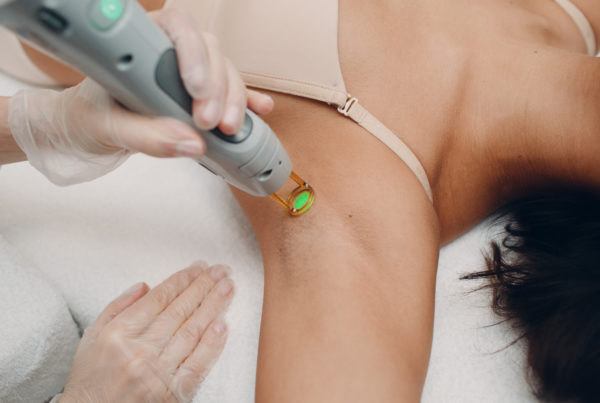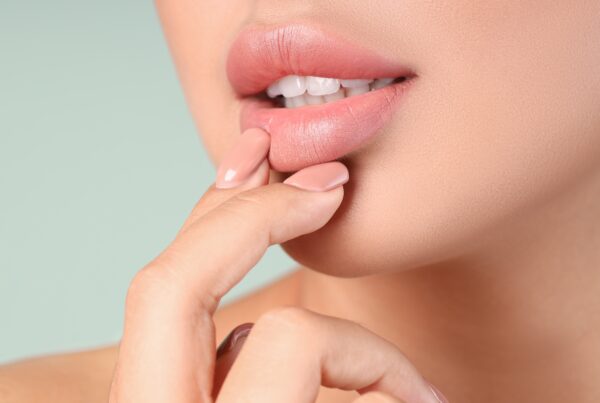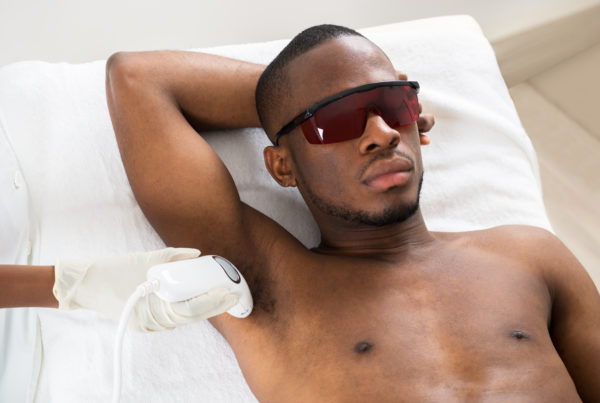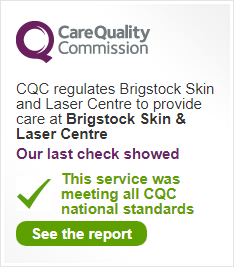How to treat your spots clinically and top tips to help you avoid getting them in the first place
Everybody suffers from spots to a greater or lesser degree. If you’re lucky, this might just be the odd random spot that develops from time to time. For others, acne can be a severe chronic skin condition that can be painful, seriously affect self-esteem and even lead to pitted scars.
The good news is that there are a number of extremely effective clinical treatments available to you for treating acne and a few simple things you can incorporate into your daily skincare routine to avoid getting them in the first place. In addition to these treatments and practices, eating the right things and avoiding or reducing your intake of a couple of common food groups can also significantly reduced the number of spots you get.
So what is acne?
Acne occurs when the pores of your skin become clogged with oil, dead skin cells and bacteria. Secreted oils from the glands in your skin combine with naturally occurring bacteria and dead skin cells to block the hair follicles. The oil secretions build up beneath the blocked pore providing a perfect environment for the skin bacteria which then develop into a pimple.
Acne cures?
It is impossible to not walk into a store or turn on the TV nowadays without seeing ranges of acne treatments, which claim to ‘cure acne’ or offer some sort of formula. Truthfully, the effectiveness of these cosmetic treatments is limited.
You can take steps to minimise it or even rid your skin of spots temporarily, but it would be misleading to suggest you could be ‘cured’ from ever suffering an outbreak again. Negligent skincare practices, poor dietary choices and hormonal fluctuations may still result in acne breakouts. Although adopting a proper acne skin care regimen and making good lifestyle choices should limit your breakouts enormously.
What acne treatments are available?
Typical clinical treatments can include a couple of oral medications like retinoic acid or antibiotics. Both are available on the NHS but are not without their potential side effects. Antibiotics have been shown to cause problems with your gut microbiome and a number of recent studies have associated this with various chronic diseases including obesity. retinoic acid is a very effective drug, but whenever patients begin a course of treatment it is necessary to monitor them for signs of depression and women must also take steps to ensure they do not become pregnant.
An alternative form or clinical treatment is the use of a topical Benzoyl Peroxide (BPO) like Obagi’s ClenziDerm. ClenziDerm is the only prescription strength, physician-dispensed acne system with 5% liquefied Benzoyl Peroxide (BPO).
Why is CLENZIderm different?
There are many acne products available containing Benzoyl Peroxide (BPO). The key difference with CLENZIderm is that it targets the acne at the source of the pimples through its superior ability to penetrate the skin. This is achieved as a result of the treatment’s use of a patented soluble form of BPO.
Most BPO acne products contain a macro-crystal form of BPO. The problem with these products is that they use macro-crystals that are too large to penetrate your skin and so remain on the surface. Because the 5% BPO CLENZIderm uses is 1/10,000 of the size of any other BPO product it is better able to penetrate the skin follicles.
Clinical tests have emphatically demonstrated CLENZIderm’s superior ability to penetrate the skin. You can actually see the larger BPO crystals sitting on the surface of the skin in the electronic microscope images below.
The CLENZIderm system consists of 3 products:
- Daily Care Foaming Cleanser – Salicylic Acid and Menthol
- Pore Therapy – 2% Salicylic Acid, Menthol and Denatured Alcohol
- Therapeutic Lotion – 5% Liquefied Benzoyl Peroxide
By using all three products you will see:
Rapid onset of action – dramatically reducing the bacteria that causes acne compared to other Benzoyl Peroxide/Clindamycin combinations.
Fast results – 52% Reduction in inflamed pimples in just 2 weeks and 34% reduction in non-inflammatory pimples compared to other Benzoyl Peroxide/Clindamycin Combination.
If you’d like more information on the Obagi CLENZIderm call Brigstock Skin and Laser Centre now on 020 8683 6730 and speak with your personal practitioner.
Simple, Sensible Skincare Practices
In addition to clinically treating your spots there are a number of simple, sensible skincare practices you can adopt to avoid getting them in the first place. Here’s how you can take control and improve the appearance of your skin by ensuring you are doing the following:
- Don’t Pick! On your fingers are the same bacteria and oils that are causing you to break out in spots. Squeezing your spots just pushes more bacteria and oil into your pores causing further inflammation. What’s more, picking can lead to acne scarring.
- Don’t sleep with makeup on. To prevent your pores becoming clogged and developing into breakouts, remove your makeup before getting into bed.
- Make sure you’re using a proper well thought-out skin care regime that is appropriate for your skin type. This will help to maintain healthy skin and prevent breakouts. If you need any advice on this speak with your Brigstock Personal Practitioner.
- When covering blemishes with a concealer choose one that contains ingredients such as Salicylic Acid. This will help to disinfect your skin while concealing.
- Your cosmetic brushes should be washed at least once a week in warm soapy water. This will remove oil and bacteria that can cause spots.
- Wash your pillowcases regularly. The germs and bacteria that cause acne can happily live in dirty pillowcases, so wash them often to help prevent acne.
- Gently pat dry your face with a clean towel after washing. Do not dry your face by rubbing. Rubbing will only irritate your skin and can lead to further breakouts.
- A good shower and a thorough cleansing regime after any sports activity are crucial. Removing all your perspiration and oil that has settled on the skin’s surface after the activity will ensure that dirt and bacteria does not become trapped in your pores.
- Long hair, headbands or hijabs around the face and wearing hats or bandanas too frequently can also encourage acne to spread. Keep your hair and headwear clean and where possible away from the face.
Diet and food groups to avoid
Since the 1970’s clinicians have been taught that diet does not have any impact on acne. Recent studies have however suggested that this is not the case. And anecdotally many of us know this to be true. If we accept that our skin is an accurate reflection of our internal health, it follows that a poor diet will be reflected in our skin’s health.
A possible link between the hormone insulin and acne was demonstrated in a 2007 study. Your body produces insulin when you consume foods with a high glycemic index (GI). This includes sugary foods or food containing carbohydrates that significantly raises you blood glucose. Choosing lots of vegetables with a low GI and high antioxidants will reduce the oxidative stress within your body and subsequently reduce low-grade inflammation. Brightly coloured low GI vegetables will not only give your skin a healthy glow they should also help to reduce your breakouts.
Although a causal link between dairy and acne hasn’t been proven there are theories that suggest they may be related. Because dairy can raise your testosterone levels it is suggested that this may over-stimulate the glands that secrete oil in your skin. This in turn creates a perfect environment for the bacteria that causes acne. Although there is plenty of anecdotal evidence that restricting your dairy intake might help control acne it doesn’t follow that this would be true for you. It is however helpful to know that studies have shown an association and to understand why this might be.
A diet over-reliant in oils high in omega-6 fatty acids is understood to promote inflammation within your body. Low-grade inflammation is thought to be responsible for many chronic diseases as well as poor skin health. In most people with a modern western diet their consumption of omega-6 fatty acids far outstrips their omega-3 fatty acid consumption. To address this imbalance you should try to avoid vegetable oils and try to eat fish high in omega-3s. In addition, always try to choose free-range organic meat and eggs. Animals that are pasture fed as opposed to corn fed will pass on few omega-6 fatty acids to you and help reduce low-grade inflammation.
Conclusion
Following these suggested skin care practices and improving your diet should help control your breakouts. If you’re looking for some healthy recipes you can find loads of delicious suggestions on the Brigstock Skin and Laser website here. If you’d like more advice about good skin care practices or clinical treatments for dealing with your acne, you can book your complimentary appointment with one of our personal practitioners now on 020 8683 6730.





